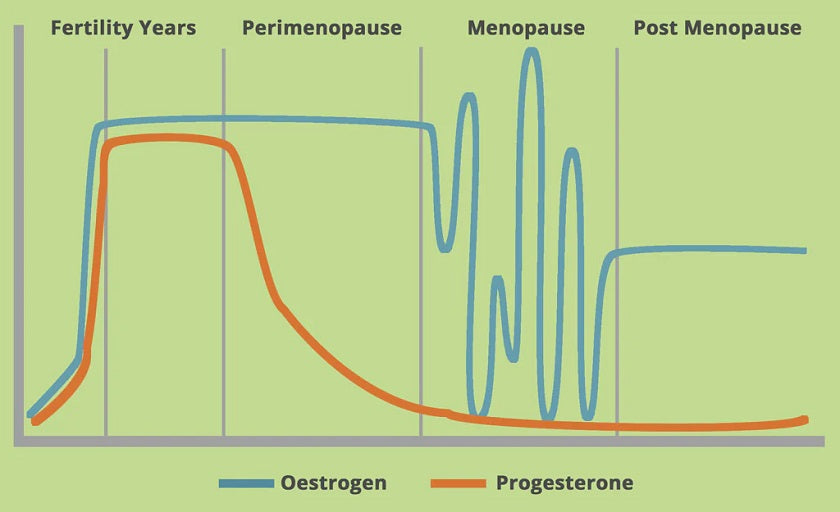Hormone metabolism (hormone breakdown and excretion) is the process the body uses to eliminate hormones from your body.
Why is hormone metabolism so important?
If you don't break down and excrete hormones completely, then they're reabsorbed into the bloodstream via the digestive system. This can create a two and three-fold effect of these hormones - since hormones are messengers.
Hormones tell the body what to do at certain times. In the case of oestrogen, it tells the body to build cells & prepare for ovulation. If the message is constantly stimulatory, then tissue overgrowth, fibroids, fluid retention, weight gain, bleeding, and mood issues may develop.
Most chronic hormonal conditions do not metabolise hormones well, either due to genetic influences or lifestyle factors. Alcohol, for example, increases circulating hormones by 200% because the liver focuses primarily on alcohol metabolism, before hormone metabolism. Sugar has a similar effect in damaging the liver.
Women with chronic hormonal conditions will generally have a genetic predisposition to poor hormone metabolism.
Women in perimenopause are particularly prone to elevated oestrogen levels because progesterone naturally reduces five years before menopause. This leaves oestrogen unopposed, which is the primary trigger for heavy bleeding.
Replacing progesterone is a band-aid approach and leaves the body further unable to produce its own progesterone, which can lead to a difficult menopause. It's far better to encourage the body to produce its own progesterone via the adrenals, which is a natural process.
Liver
The liver is the first stop for hormone metabolism. Hormones are secreted into the blood to act as messengers. They circulate within the blood, looking for hormone receptor sites to bind to. The body secretes different hormones at different times of the day, times of the cycle, and during defining life events such as puberty, pregnancy, and menopause. These hormones should then pass through the liver and get broken down into smaller metabolites, to be further broken down and excreted via the digestive system.
There are three main detox pathways in the liver—methylation, conjugation, and glycination. Hormones mainly go through a process of methylation and conjugation.
Many women also have the MTHFR gene, which reduces their ability to methylate in the liver.

We often see women with compromised liver function and fatty livers, without any history of alcohol use. The primary reason for this is the hidden sugar in food. It's very easy to ingest 50 to 100 teaspoons of sugar a day without even realising it. This amount of sugar damages the liver, just as much as excessive alcohol intake.
There are many natural medicines to assist in improving liver function. Well-known herbal medicines such as Milk Thistle, Dandelion, and Globe artichoke have been used by naturopaths for decades to stimulate liver function. Amino acids such as methionine, cysteine, and taurine can also assist with improving the liver pathways.
One of the most effective natural remedies, however, is Di-Indol-methane (DIM). This naturally occurring compound is found in cruciferous vegetables and is especially high in Broccoli sprouts. Having green juice every day can help, and you can get DIM in supplement form.
Digestion
Once the liver has broken the hormones down into smaller molecules, the role of the digestive system is to break down further and eliminate these hormones; otherwise, they can be resorbed back into the blood supply. If the liver doesn't fulfil its role and neither does the digestion, then we find the double and triple impact of these hormones.
The process is not just elimination, however. The diversity of your microbiome plays an important role. Over 60 intestinal bacteria have been identified and classified into what has been named the Estrobolome (bacteria that influence oestrogen levels).
Research is still very new, however, these bacteria have been shown to affect levels of Beta-glucuronidase and glucosidase - which either increase or decrease the absorption of oestrogen in the gut. Although not identified, the same process would apply to all hormones that the body produces.
Interestingly, diet has an impact on the level of activity of these enzymes. A diet high in protein has been shown to increase the level of circulating oestrogen; whilst a plant-based diet feeds the beneficial bacteria, which lower circulating oestrogen.
Summary
If you don't metabolise hormones efficiently, then these non-metabolised hormones go on to have a secondary influence, which not only affects tissues but confuses your hormone control centre. If you take synthetic hormones as well, it's a recipe for disaster for your endocrine system. This is one of the main reasons why so many women have thyroid, adrenal, and sugar issues. The body is connected in every way.
Virtually every hormonal condition before menopause can benefit from improved hormone metabolism.









Leave a comment
This site is protected by hCaptcha and the hCaptcha Privacy Policy and Terms of Service apply.